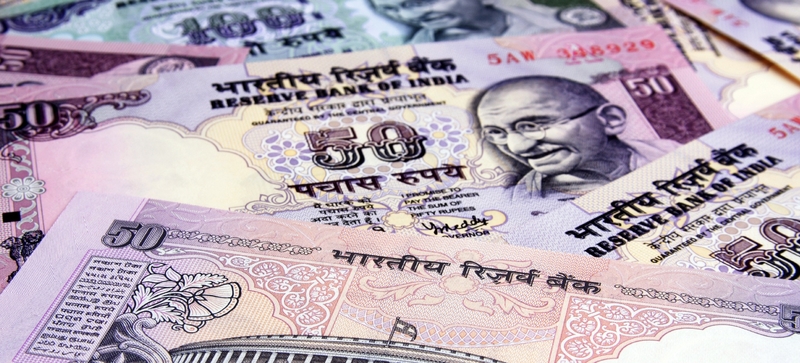Indian Government Bans Some Currency to Curb Black Money
The Narendra Modi government withdrew certain notes from public use to control counterfeiters.

In a surprise move, the Narendra Modi government announced on November 8, 2016, that the existing US$ 7.5 (Rs 500) and US$ 15 (Rs 1,000) currency notes would be withdrawn from public use. The move is the government’s boldest step yet to curb the circulation of black money and counterfeit currency as well as control inflation. Only twice before, first in 1946 (a year prior to independence) and then in 1978, has the government taken such action to demonetize high-value currency.
As soon as the announcement was made, long queues were seen at ATMs and banks to either withdraw US$ 1.5 (Rs 100) denominations or deposit the 500 and 1000 rupee denominations. All banks and ATMs were closed on November 9, 2016, to replace the older denominations. Banks reopened the next day, while ATMs commenced limited operations on the same day.
To alleviate inconvenience in the near term, airline ticketing counters, government hospitals, pharmacies, and railway reservation counters accepted the old currency notes until November 11, 2016. The older currency denominations were able to be exchanged or deposited at banks until December 30.
The Losers
While the general public, small-time traders, mom-and-pop shops, and fruit and vegetable vendors will suffer in the immediate term, there are other groups that will also feel the pinch:
Political parties—Political parties use monetary rewards to influence elections, giving away freebies and cash itself, particularly in rural areas, to gain votes. Political parties also receive donations in cash without any records. Reports say that around 75% of the source of funds to political parties is unknown. With important state elections coming up, political parties and leaders will have to actually work and come up with creative ways to woo the voters.
Gold—This is another area where tax evaders hide their wealth. The latest development will tighten up retail trade and bring down the demand for gold. India is a major importer of gold and, thus, the import bill could likely come down.
Real estate developers and small traders typically deal in cash to avoid paying tax, and this is one sector where a significant amount of money is unaccounted for. With the latest ruling, the real estate sector will become on par with global economies affected by market prices. Real estate prices are also expected to drop.
The Winners
Then there are other groups that will reap the rewards:
Credit card companies—Credit card transactions are expected to soar following the ban on the use of old currency notes. Such companies are also expected to increase discounts and incentives.
Mobile/digital wallets—Mobile/digital wallet companies such as Paytm and Mobikwik are likely to see a significant increase in transactions. The industry was facing challenges while competing with cash. Grocery stores like Big Basket and taxi aggregators such as Uber and Ola all use mobile wallets, which will boost such transactions.
Startups—Startups are expected to benefit, too. Analysts state that customers will be pushed to make online payments and cashless transactions. In order to compete, several startups have a cash-on-delivery options but this has challenges as cash takes longer to account for and has a higher return rate. The push to online payments will help boost the industry.
Takeaways
The government’s move is a bold one as it aims to remove the large amounts of unaccounted cash being held by businesses, individuals, and households. The transparency is expected to boost the economy in the long term while easing inflation and raising tax collection. The crackdown will allow no time for people with unaccounted cash to think of alternative plans.
Nevertheless, while the ruling aims to unearth black money, tax evaders can still get creative and use other ways to refrain from declaring their cash reserves. While many say this is a watershed moment, the challenge will be for the government and banks to deal with the immediate logistics and massive overhaul in as seamless a manner as possible.
Original article posted by China Briefing. Since its establishment in 1992, Dezan Shira & Associates has been guiding American investors through Asia’s complex regulatory environment and assisting them with all aspects of legal, accounting, tax, internal control, HR, payroll, and audit matters. As a full-service consultancy with operational offices across China, Hong Kong, India, and emerging ASEAN, including liaison offices in Boston and Waltham specifically established to support our American clients, we are your reliable partner for business expansion in Asia and beyond. For inquiries, email us at [email protected]. For further information about our firm and how we can support American investors in Asia, visit our North American Desk.